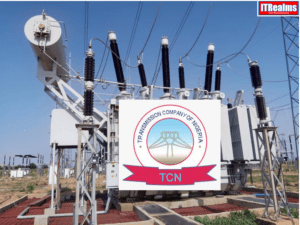
Nigeria’s oil, gas sector registers 13th quarter of negative GDP growth
Data from the National Bureau of Statistics has shown that Nigeria’s crude oil and gas mining sector recorded a negative real GDP growth rate of 13.43 per cent in the second quarter of 2023.
This marks the 13th consecutive quarter in which the sector has posted negative real GDP growth, extending a downturn that began in the second quarter of 2020 when the COVID-19 pandemic led to a global economic shutdown that included Nigeria.
The oil refining sub-sector has also been in decline, contracting since the second quarter of 2018. The underperformance of Nigeria’s refineries has compelled the country to rely on imports for refined petroleum.
In terms of GDP composition, both crude oil and gas production and the refining of oil contribute about 5.34 per cent and 0.01 per cent, respectively. Crude oil and gas contributed 9.5 per cent to GDP in 2020.
In nominal terms, these sectors together account for N2.946 trillion, with crude oil and gas production making up 99 per cent of that total.
Stagnation in Nigeria’s crude oil output has only compounded the government’s fiscal woes; production levels have remained at between 1 to 1.3 million barrels over the last five years.
Although the oil and gas sector comprises around just 5 per cent of the GDP, it contributes to more than 85 per cent of government revenues and serves as a major source of foreign exchange for the country.
The continuous contraction of the sector has significant implications for Nigeria’s ability to maintain a stable exchange rate regime, particularly after the government’s move to unify exchange rates through a managed system.
Since the introduction of this system, the exchange rate has soared to over N900/$1 on the black market, as the demand for dollars continues to outstrip supply.
Several factors have contributed to the sector’s contraction, including organised crude oil theft, which has severely impacted output. Furthermore, International Oil Companies (IOCs) have been divesting and selling off assets to local firms, leading to a nearly $20 billion investment shortfall in the sector.
The local firms, however, lack the technical and financial capacity to operate these assets efficiently, resulting in lower production and higher costs.
Additionally, the delays in enacting the Petroleum Industry Bill (PIB), which was pending for over a decade, has deterred new investments and exploration activities in the sector.
Critics also opine nothing much has happened in the sector since the bill was signed into law by President Buhari.
To reverse the decline of the oil and gas sector, Nigeria needs to urgently address the challenges that have hampered its growth and competitiveness.
Some have pointed to Nigeria’s fixation on crude oil production rather than focus on gas which the country is more endowed with.
To address these issues, the government recently created a new Ministry of State for Gas with the aim of harnessing Nigeria’s enormous gas reserves.
However, these efforts are unlikely to bear fruit unless Nigeria can attract foreign investment back into the sector. Crafting the right policies has also never been the challenge, however, implementing them has failed several successive governments.
For example, under the National Development Plan 2021-2015, the APC government plans to commercialise up to 80 per cent of upstream gas for use in powering gas power plants as well as for export purposes.
This will involve investing in additional gas infrastructure and strengthening current gas production sharing contract terms to increase viability and investment appetite.
The government also said it will promote the policy on methanol fuel production technology already approved by the Federal Executive Council.
In the midstream and downstream areas, it plans to provide the framework to support private sector participation and initiative at building new refineries. It also plans to repair and extend the coverage of pipelines to serve as an efficient transportation pathway for petroleum products.
It will involve concessions to existing pipelines under a transparent and competitive Public-Public-Private partnership (PPP) arrangement with effective regulations to prevent monopolies and other adverse consequences.
To placate foreign investors, it also wants to fully implement the Petroleum Industry Act to improve investors’ confidence and overall sector efficiencies.
And to fix insecurity it plans to develop a holistic oil and gas security policy enforced by relevant security agencies, including the police force and the Nigeria Security and Civil Defence Corps.
These are all great policies on paper, but it is time to walk the talk. They have started by removing fuel subsidies which ostensibly has led to severe economic hardship for Nigerians. As difficult as this was for most governments, it is likely the easiest part of getting the oil and gas sector back on track.
The hard part is attracting investments and eliminating the lucrative crude oil theft which allegedly has several government officials too complicit in the crime to want to wish it away.
The current government under President Tinubu will also need to rely on its network of influence to bring the IOCs back on the table and give them what they need to bring back investments in the country. After all, Nigeria also needs its dollars to help fund other critical imports.
One thing is clear, Without growth in the oil and gas sector, Nigeria will struggle to fix its fiscal crisis which is critical to keeping the economy afloat.
The continued contraction of the oil and gas sector has far-reaching implications for a government already grappling with a fiscal crisis, characterised by high budget deficits and burgeoning debt.
The Nigerian populace is also growing increasingly frustrated with soaring inflation, fueled by the removal of fuel subsidies and the depreciation of the naira.



